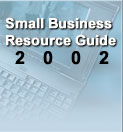 |
| |
| |
| |
| |
| |
| |
| |
| |
| |
| |
| |
| |
| |
| |
| |
|
Guidance for Special Types of BusinessesSpecial Rules for Certain Business StructuresSpecial Provisions for S-CorporationsAn S corporation is a qualifying corporation that chooses to have its income taxed to the shareholders rather than to the corporation itself, except as noted below under Taxes. Its shareholders will then include in income their share of the corporation's nonseparately stated income or loss and separately stated items of income, deduction, loss, and credit. To make this election, a corporation, in addition to other requirements, must not have more than 75 shareholders. Each of its shareholders must also consent to the election. Taxes. Although it is generally not liable for federal income tax itself, an S corporation may have to pay the following taxes.
An S corporation may have to make quarterly estimated tax payments for these taxes. An S corporation files its return on Form 1120S. For more information on S corporations, see the instructions for Form 1120S. To elect to be an S corporation, a corporation must file Form 2553. The election permits the income of the S corporation to be taxed to the shareholders of the corporation rather than to the corporation itself.
Form
1120S U.S.
Income Tax Return for an S Corporation |